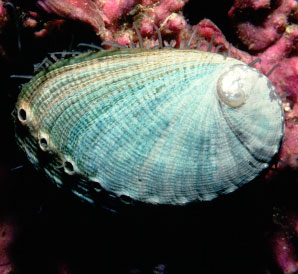National Geographic met and interviewed the last remaining speakers of several aboriginal languages. These included the last three surviving speakers of Magati Ke (also called Marti Ke) in Wadeye, NT. Even more remarkably they discovered the last speaker of Amurdag (Amarag), which had been reported extinct 25 years ago. Charlie Mungulda could recall the language used by his father but had not used the language in nearly 50 years and remembered the words with difficulty.
But Australia is not the only trouble spot for language. The National Geographic study, known as Enduring Voices said that a language dies somewhere in the world every two weeks. It claims that by 2100, more than half of the planet’s 7,000 languages will disappear. With them will disappear a wealth of knowledge about history, culture, the natural environment, and how the human brain works. Study co-director David Harrison of Swarthmore College in Pennsylvania says the extinction rate of languages exceeds the extinction rate of species.
The study identified four other global hot spots for language extinction. They are central South America (Ecuador, Colombia, Peru, Brazil and Bolivia), eastern Siberia, the US and Canadian Pacific Northwest and Oklahoma. Bolivia alone has twice the language diversity of the nations of Europe combined. Oklahoma was established as Indian Territory in the early 1800s until land hungry settlers swallowed it up to create the state of Oklahoma in 1907. Descendants of more than 60 tribes make Oklahoma second only to California in Indian population.
According to the non-profit Living Tongues Institute for Endangered Languages (who jointly sponsored the study with National Geographic) languages are abandoned when speakers think of them as socially inferior, backward, or economically stagnant. When these languages die, they take a vast repository of human knowledge with them. The current rapid decline of approximately one every two weeks appears to be unprecedented in human history.
 The study found that the 83 most widely spoken languages account for about 80 percent of the world's population while the 3,500 smallest languages account for just 0.2 percent of the world's people. The English language threatens the survival of the 54 indigenous languages of the Northwest Pacific plateau of North America, a region including British Columbia, Oregon and Washington. Only one person remains who can speak Siletz Dee-ni, the last of many languages once spoken on a reservation in Oregon. Meanwhile in Eastern Siberia, government policies have forced speakers of minority languages to use Russian.
The study found that the 83 most widely spoken languages account for about 80 percent of the world's population while the 3,500 smallest languages account for just 0.2 percent of the world's people. The English language threatens the survival of the 54 indigenous languages of the Northwest Pacific plateau of North America, a region including British Columbia, Oregon and Washington. Only one person remains who can speak Siletz Dee-ni, the last of many languages once spoken on a reservation in Oregon. Meanwhile in Eastern Siberia, government policies have forced speakers of minority languages to use Russian. Many languages have no written form, meaning that they are lost forever when their last speaker dies. Fellow co-director of the Enduring Voices project and director of Living Tongues, Gregory Anderson said languages usually trickle out of existence rather than abruptly disappearing. Harrison and Anderson have travelled the world to interview the last speakers of certain languages. "We'll start with a basic 100- or 200-word list. And then we'll go over each word with them again to make sure that we're transcribing it correctly, and try to repeat it to them," said Anderson. "And usually they'll burst out laughing at that point because we have hideously mispronounced it ... or make some word that sounds obscene to them. ... I did that in Australia, I'm afraid."





